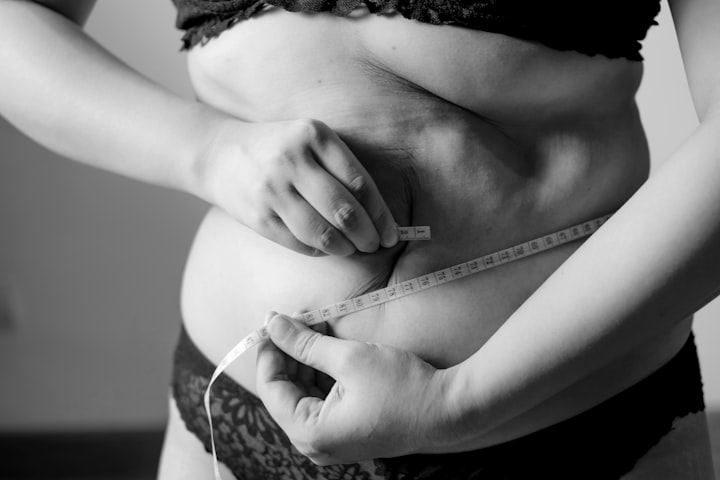Signs You're About to Pass Out and Why It Happens
Do you know the sensation of feeling light-headed, dizzy, and experiencing fading vision? This could be a sign that you are on the verge of losing consciousness, also known as passing out. Passing out is a temporary and abrupt loss of awareness that can be triggered by various factors.

What Happens When You Pass Out?
Before we delve into the signs of passing out, let's take a quick look at what happens to your body when you faint. When you pass out, your brain temporarily stops receiving enough oxygen-rich blood, which causes you to lose consciousness. This can happen due to a sudden drop in blood pressure, which can be caused by a variety of factors.
Signs You're About to Pass Out
Lightheadedness - You may feel like you're about to faint if you suddenly feel lightheaded and dizzy. This can be due to a sudden drop in blood pressure or a decrease in blood flow to your brain.
Nausea - Another common sign that you're about to pass out is nausea. You may feel sick to your stomach or experience a sudden urge to vomit.
Blurred vision - Your vision may start to fade or become blurry before you pass out. This is because your brain is not receiving enough oxygen-rich blood.
Tunnel vision - You may experience tunnel vision or a narrowing of your field of vision before you pass out. This can be a scary experience, but it's important to stay calm and try to relax.
Sweating - You may start to sweat profusely before you pass out. This is because your body is trying to regulate your temperature and maintain blood flow to your vital organs.
Weakness - You may feel weak or unsteady on your feet before you pass out. This can be due to a lack of blood flow to your muscles.
Ringing in the ears - You may hear a ringing or buzzing sound in your ears before passing out. This is due to the lack of oxygen to the brain, which can affect the inner ear.
Feeling hot or cold - You may suddenly feel hot or cold before passing out. This is because your body is trying to regulate your temperature and maintain blood flow.
Why It Happens
Now that we've explored the signs of passing out, let's take a closer look at why it happens. There are several factors that can cause a sudden drop in blood pressure and lead to fainting, including:
Dehydration - When your body is dehydrated, it can cause your blood pressure to drop, which can lead to fainting.
Low blood sugar - If your blood sugar levels drop too low, it can cause fainting.
Standing up too quickly - When you stand up too quickly, it can cause a sudden drop in blood pressure, which can lead to fainting.
Emotional stress - Emotional stress can cause a sudden increase in heart rate and blood pressure, which can lead to fainting.
Heat exhaustion - When your body overheats, it can cause a sudden drop in blood pressure, which can lead to fainting.
Medications - Certain medications, such as blood pressure medications, can cause a sudden drop in blood pressure, which can lead to fainting.
Alcohol - Drinking too much alcohol can cause dehydration, which can lead to a sudden drop in blood pressure and fainting.
Pregnancy - Pregnant women may experience fainting due to changes in blood pressure and blood sugar levels.
Heart conditions - Certain heart conditions, such as arrhythmia or valve disorders, can lead to fainting episodes.
Prevention Tips
To prevent fainting episodes, consider the following tips:
Stay hydrated - Drink enough water to prevent dehydration, which can cause a sudden drop in blood pressure.
Eat a balanced diet - Eat a healthy diet that includes enough carbohydrates to maintain blood sugar levels.
Move slowly - When getting up from a sitting or lying position, do it slowly to give your body time to adjust to the change in position.
Manage stress - Practice stress-reducing techniques, such as meditation or deep breathing, to prevent emotional stress from causing fainting.
Avoid extreme temperatures - Avoid prolonged exposure to extreme heat or cold, which can cause your body to overheat or cool down too quickly.
Review your medications - Talk to your doctor about any medications that may cause a sudden drop in blood pressure and ask if there are alternatives.
Conclusion
Feeling faint can be a frightening occurrence, but it's crucial to remain composed and attempt to unwind. In case you encounter any of the symptoms we've talked about, such as dizziness, queasiness, unfocused eyesight, narrow vision, perspiration, feebleness, ringing in the ears, or feeling overheated or chilly, it's necessary to sit or recline and wait for the sensation to subside. It's essential to keep yourself hydrated, consume a nutritious diet, and avoid standing up too hastily to prevent fainting incidents. If you persist in experiencing fainting or have a sensation of impending unconsciousness, it's vital to seek medical attention without delay.
About the Creator
Khula
Lets enhance ourselves through knowledge
Enjoyed the story? Support the Creator.
Subscribe for free to receive all their stories in your feed. You could also pledge your support or give them a one-off tip, letting them know you appreciate their work.






Comments
There are no comments for this story
Be the first to respond and start the conversation.